Scientists try to unravel mystery of sperm whale deaths in England, Holland and Germany
SCIENTISTS investigating why 16 sperm whales have turned up dead on northern Europe beaches were given a shock when one exploded during an autopsy. Warning: Graphic.
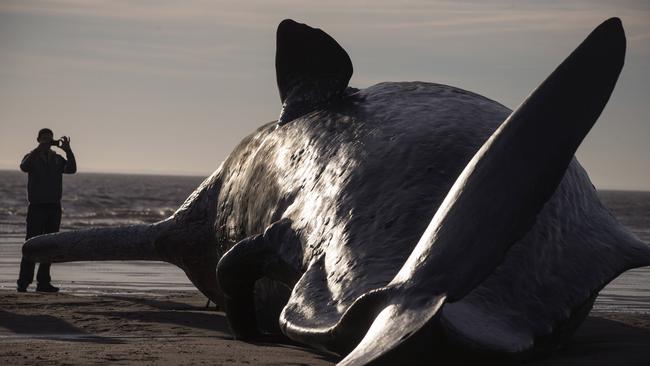
WARNING: Graphic images.
A GIANT whale washed up on a beach exploded during a grisly autopsy.
The 15-metre giant let out a “huge blast of air” as marine biologists carried out a post-mortem on the creature, The Sun reported.
The 30-tonne sperm whale beached itself on Central Beach near Skegness, Lincs., yesterday — while two smaller calves were found two-and-a-half miles along the coastline.
They are thought to be from the same pod as a dead whale on Hunstanton beach, 25 kilometres across The Wash bay, which stranded and died on Friday.
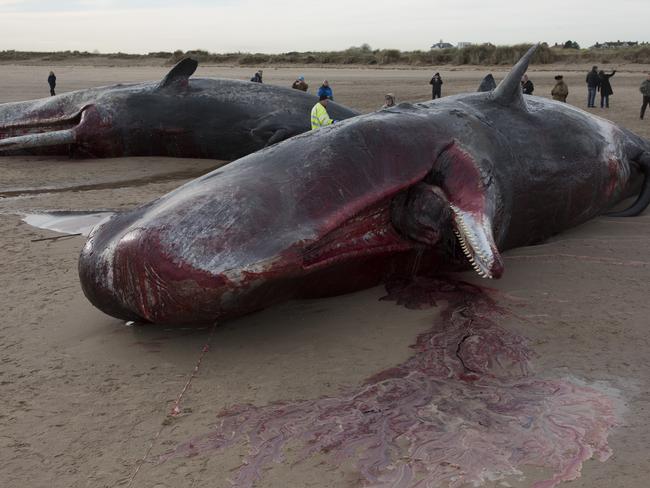
Many shocked onlookers expressed their upset at the horrific sight on their local beach, while others took selfies in front of the body.
Deborah Holden, of Wragby, Lincolnshire, said: “It’s bad enough having one wash up, but for three of them to beach in Skegness is terrible.
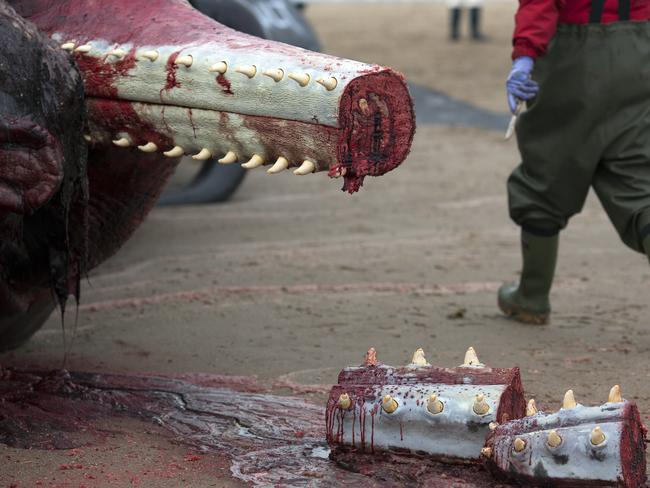
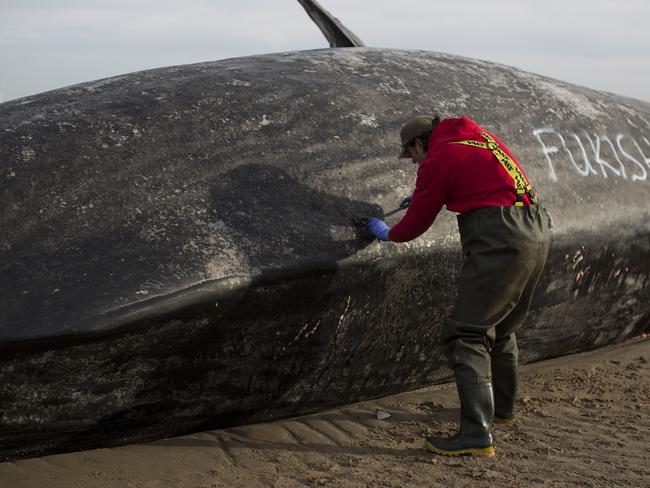
“And when two of them are babies it makes it even worse. It’s been very hard to watch.”
“We believe that the three whales at Skegness died at sea and then washed ashore,” said coastguard Richard Johnson.
“We are advising members of the public to stay away from the beach.
“We have informed the Receiver of Wreck and we are expecting an officer from the Zoological Society of London to attend the scene and carry out tests on the whales.” Doctor Peter Evans, director of the Seawatch Foundation, said the whales probably swam south looking for food but got disorientated.
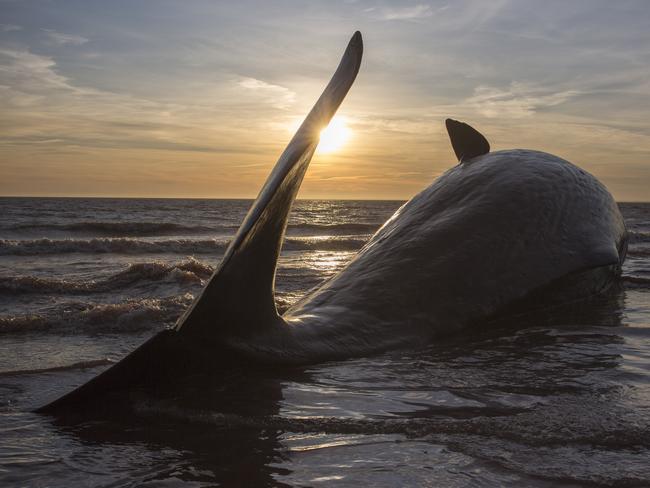
He believed they could have been part of a large pod, 12 of which beached in the Netherlands and Germany.
Sperm whales are deep-sea mammals that tend to live and hunt at a depth of around 3,000m, the BBC reported.
Females and their young are thought to remain in the tropics but males can go much further afield and are often seen around Iceland, Norway and Shetland.
One theory is that the dead whales found over the past week were part of a pod that followed a shoal of squid into the North Sea and then became stranded.
The North Sea is shallow, only 200 metres at its deepest point, and experts say it’s easy for whales to become disoriented in shallow waters.



